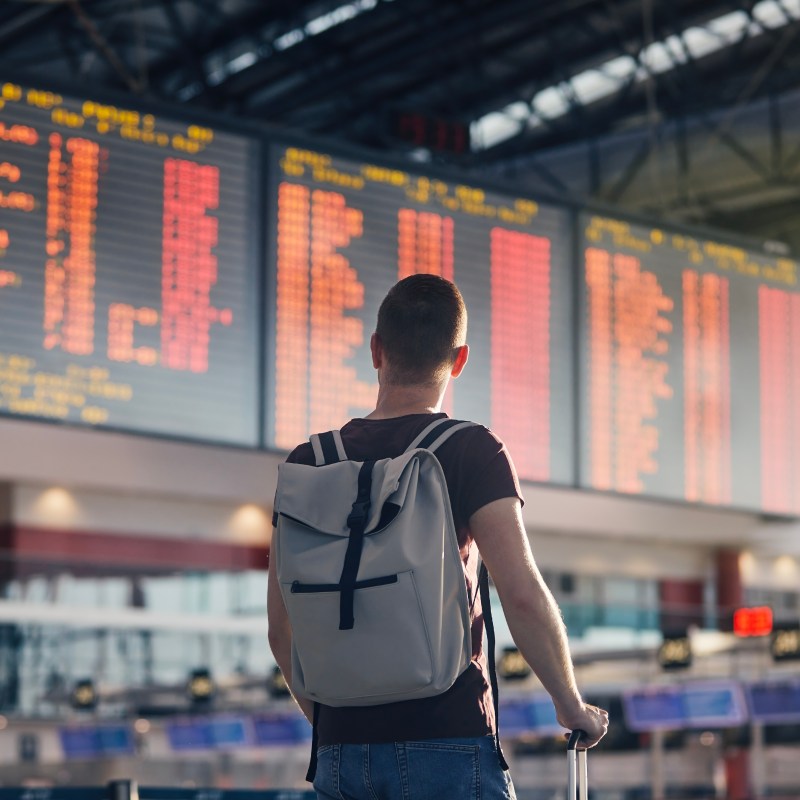
The airport is one of life’s most unforgiving spaces.
Videos by TravelAwaits
Though some airports are works of art, the vast majority are designed with utility in mind. And not just general utility—the type of no-frills efficiency that can manage the identification of thousands of passengers while coordinating flight paths, take-offs, and arrivals.
In other words, though airports are often cold and uncomfortable, it’s understandable. Aesthetics come second to safety, and rightfully so.
But there’s a time when the sterility of the airport feels like an offense. When things go wrong with your flight, your luggage, or your overall travel plans at an airport, the atmosphere can suddenly feel biting.
When we’re at our most vulnerable, and when we have questions that often involve pricey answers, it’s easy to lose our cool.
It’s even easier to feel baffled about what to do next when things at the airport go awry.
Need an airport disaster guide? Though I can’t help you sort through things like tornadoes or major security threats, I can help you navigate slightly less serious airport mishaps, from knowing what to do about an overbooked flight to managing long layovers and missed connections.
Here’s your game plan for the most common airport disasters out there.
Airport tips: What to do if you miss your connecting flight

With more flight delays and multi-leg travel journeys than ever before, missing connecting flights isn’t nearly as rare as it once was. When it comes to finding solutions to missed connections, you need to think about who caused the delay, along with where you missed the flight.
In the United States, airlines are not legally required to help you manage missed connections. Even when domestic airlines are the cause of a delay (as in, your original departing flight was delayed), they aren’t (usually) required to help.
That’s because the vast majority of delays are outside of their control, from inclement weather to Air Traffic Control issues to safety checks.
That being said, airlines want to protect their reputations, meaning they’ll likely offer you rebooking and vouchers if they are partly responsible for the delay. If not, you might be eating those costs, which is why some travelers insist on purchasing travel insurance.
Here’s how to rebook a missed connecting flight:
- Speak with an agent at the counter to reschedule your flight
- Use the airline’s app to reschedule the flight
- Purchase a new flight from a different airline if your original airline can’t accommodate your new plans
There’s an important caveat here. In Europe, you have more rights if your flight is delayed.
In the European Union, domestic flight delays over three hours can earn you compensation. The same is true for domestic flights that are delayed longer than six hours. These airlines are legally bound to provide compensation, especially if the delay caused you to miss another flight.
However, you need to submit a claim to get reimbursed. The easiest way to do that is with the help of a third-party company like AirHelp. I highly recommend bookmarking AirHelp and keeping this company in your back pocket.
AirHelp has helped me submit successful claims that have earned me around half (or more, in some cases) of my original plane fare. If you’re going to fly with a budget airline in Europe, I highly suggest you keep an eye on that three-hour marker. Document it once it has lapsed, then submit your AirHelp claim over the next few weeks when you’re able to.
Airport advice: What to do if your luggage is lost
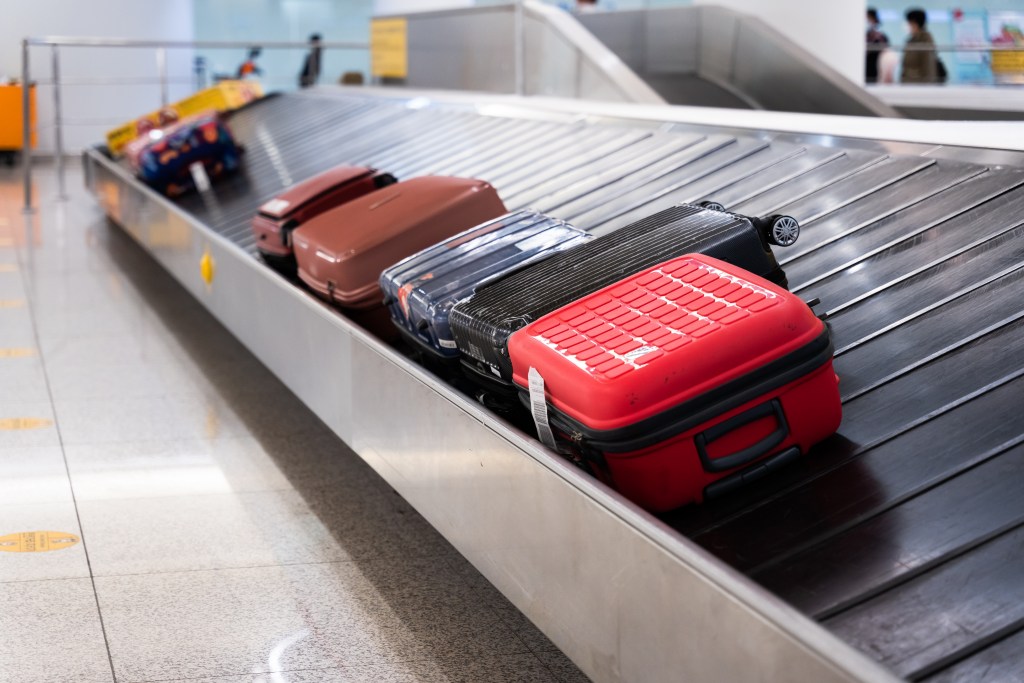
The first thing you need to know about lost luggage is that it’s actually the airport ground crew’s responsibility to get your suitcase into the cargo hold—not the airline.
Airlines are only responsible for transporting your luggage between destinations, but it’s the ground crew that ferries your suitcase from Point A to Point B at the airport.
If you’re using a geolocator tag on your luggage or if you’re able to track your luggage through an airline’s app, then you can usually triangulate the location of any lost items. If that’s the case, head to the baggage claim area and speak with the staff there.
Usually, airlines have separate booths at baggage claim where you can present your luggage tracking data. Staff will help you coordinate a solution from there. Just know that you may need to return at a later time to prove your identity and pick up the bag from another agent.
What happens if you don’t have any way of locating your lost luggage?
Unfortunately, your best bet is to file a claim with the airline. I recommend working overtime to call and follow up on your claim. The more pressure you apply, the more likely someone is to follow up on your claim. (Politely and firmly follow up without getting angry.)
If you can prove that your suitcase had valuables, you might be refunded—but if you can’t actually prove what was in your bag and how much those items were worth, you might never receive compensation.
Worse, your bag might be sold off to the highest bidder. Literally.
Airport tips: What to do if your flight is overbooked
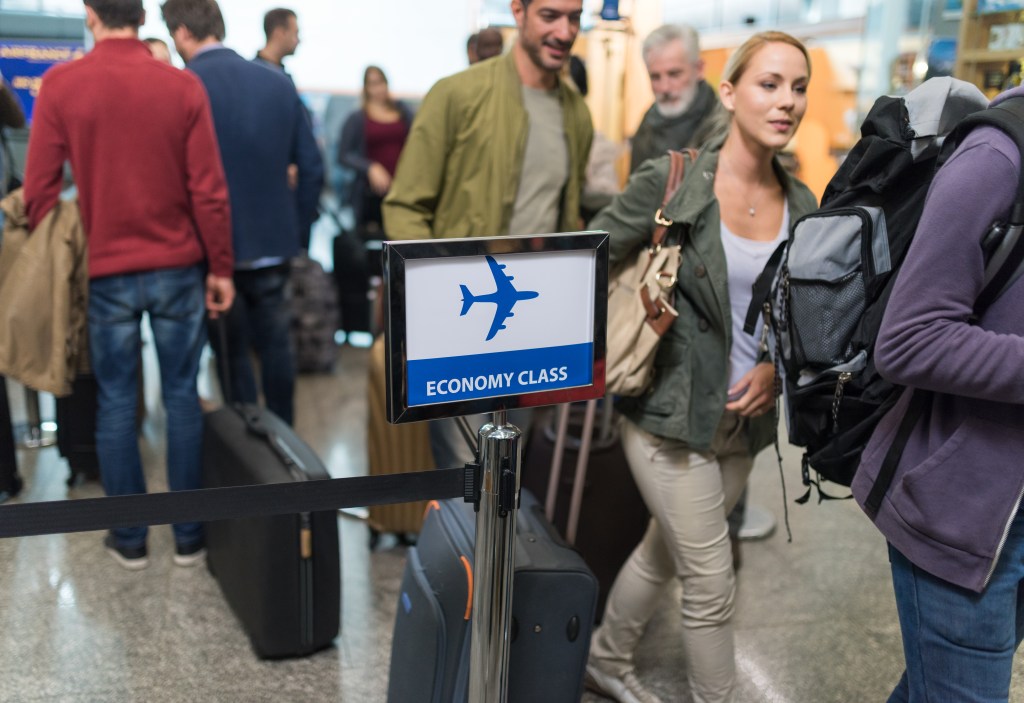
In the United States, airlines are allowed to overbook flights in order to make up for the estimated number of no-shows.
In other words, airlines rely on algorithms that predict how many empty seats they’re likely to have for a flight. If the algorithm says there are likely to be five no-shows, the airline will sell an extra five seats.
So, what should you do if you’re waiting at the gate only to hear the agent announce that the flight has been overbooked? Because it’s not illegal, you don’t have many options.
But you do need to know that you have a choice.
You can accept an airline’s offer to skip out on the flight and receive some type of compensation. This is for voluntarily giving up your seat. If no one volunteers, the airline will bump you, meaning you miss the flight and get on the next one and otherwise receive no compensation.
Here are your choices if your flight is overbooked:
- Try to board as soon as possible; gate agents will rarely pull people off the plane to get bumped. Instead, the last to board often get bumped.
- Volunteer to take a later flight, and push hard for your compensation—especially if you’re the only volunteer. Agents recommend negotiating for higher compensation. Always push for cash, too. Airlines would rather pay you off than bump an unsuspecting passenger.
Airport advice: What to do if you get stranded
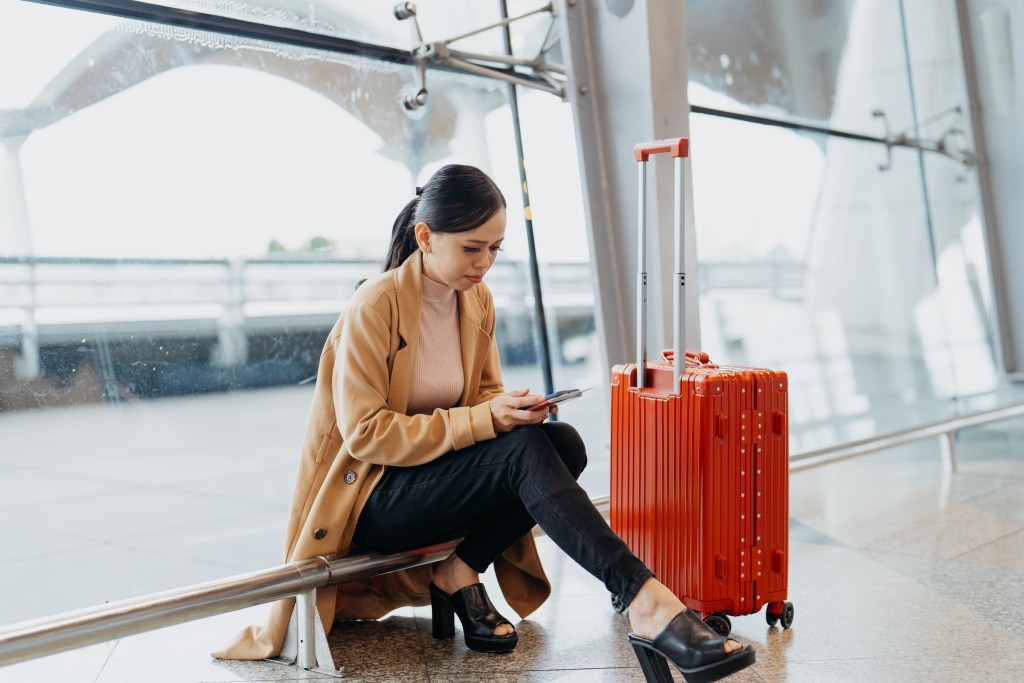
You might get stranded at the airport for a number of reasons, whether inclement weather, major air traffic control problems, or another beautiful surprise.
Unfortunately, getting stranded at the airport (especially overnight) is often a confusing and uncomfortable experience, especially if you can’t readily book a new flight.
So, what should you do if you’re stranded at the airport? My first piece of advice is to stay calm and buckle in for the long haul. Like you might already know, some airport disasters aren’t easily fixed, especially if multiple delays are wreaking havoc on an airport’s flight schedule.
The calmer you are, the more likely you are to stay in high spirits, and staying in high spirits can help you woo the exhausted, battered employees around you. (I’m not joking—a sunshine-y attitude can get you unexpected perks, from better seats to snacks to lounge access.)
Aside from keeping your cool, here’s what to do:
- Get familiar with your rights by taking a closer look at your airline’s policy
- Document exactly what’s happening with receipts, just in case you need to prove your case later on
- Make allies at the airport with fellow passengers who are in the same boat; you can keep each other updated on news and share insights
- If you need to calm down, look for a prayer or meditation room (many airports have them, and they’re designated quiet spots)
- If you need to pass the time, FaceTime or video call a loved one—nothing will keep your spirits high like a little convo with your favorite person (or people) on earth
- If you’re facing a really long layover, check out what to do in the next section
Airport tips: What to do if you have a really long layover
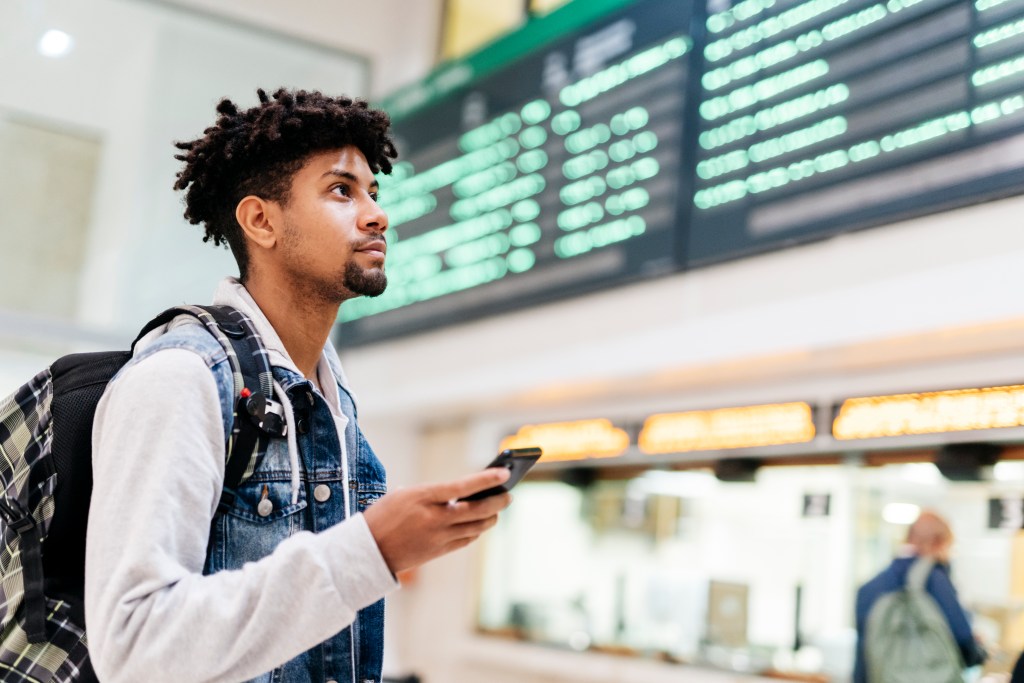
Whether you have a long layover because you’re stranded unexpectedly or you wanted to save big on your ticket, knowing how to manage over seven-hour layovers is an art. But you have more options than you might think—even if you aren’t a loyal airline member.
If you have a layover that’s over seven hours, here’s how I suggest you pass the time:
- Look for an airport lounge. Once again, you don’t need to be a loyal airline member to gain access to many lounges. In fact, you might already be part of the Priority Pass network. If not, you can usually pay between $50-100 to gain day access to a lounge.
- Look for a hotel near the airport with a day rate. Many airport hotels offer day rates for passengers who are facing long layovers. That means you can check into a room for a few hours (and even visit the hotel pool) before returning to the airport for your connecting flight.
- Take a day trip. The truly intrepid traveler might actually want to turn their long layover into a day trip. While that might sound crazy, it’s becoming more common for budget travelers who take on those hefty layovers. Just check your luggage into a locker, then head out on the adventure of a lifetime.
